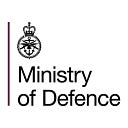Operation CABRIT explained: Deterring Aggression in Estonia and Poland
British troops have a leading role in NATO’s enhanced Forward Presence in Estonia and Poland
The Baltic States and Poland have a long history of risk of potential foreign aggression.
To help deter this, in 2017 around 4,000 troops were deployed to Latvia, Lithuania, Poland and Estonia. This deployment along the Baltic States and Poland makes up NATO’s enhanced Forward Presence (eFP).
Operation CABRIT is the codename for the UK’s deployment and contribution to NATO’s enhanced Forward Presence.
As a founding member of NATO, the UK has played a key role, leading one of the four multinational battlegroups.
Here are three things you need to know:
1. What is NATO’s enhanced Forward Presence (eFP)?
In 2017, NATO enhanced its presence in the eastern part of the Alliance, with four multinational battlegroups in Estonia, Latvia, Lithuania and Poland.
These battlegroups, led by the UK, Canada, Germany and the United States as a framework, are multinational and combat-ready, demonstrating the strength of the transatlantic bond.
It is part of the biggest reinforcement of Alliance collective defence and European security in a generation.
Each of the four multi-national battlegroups are combat-ready. They train and operate alongside host nation forces.
The NATO forces train on a weekly basis — this may be small training drills through to large scale battlegroup level exercises.
An attack on one is an attack on all
Otherwise known as Article 5 of the Washington Treaty (NATO’s founding document) it means that “an attack or provocation on one of its member states is considered as an attack against all.”
This is known as collective defence and has come into play once — in response to the 9/11 terrorist attacks in 2001.
2. What is the UK role?
As a founding member of NATO, the UK’s role in NATO’s enhanced Forward Presence is vital.
Roughly 800 soldiers from the British Army are deployed to Estonia where they lead one of the four Multi-national battlegroups.
These soldiers make up the bulk of the battlegroup in Estonia, with allies from Denmark and France supporting.
Operation CABRIT also accounts for around 150 British soldiers deployed to Poland, where they are part of the US-led battlegroup.
The British Army trains with NATO forces on a regular basis, from small training drills to full-scale battlegroup exercises. This is part of demonstrating the strength of the transatlantic bond and that together we are stronger.
For example, Exercise Spring Storm is an annual training drill, which sees Estonian conscripts mobilising as a simulated threat which the NATO troops respond to.
The UK-led Battle Group act as the defending force, sending its armour and troops to a training ground in central Estonia and other locations.
Spring Storm aims to test the readiness of NATO forces in responding to a fictional threat. This is just an example of the many ways that the UK and allied troops deter foreign aggression.
Alongside the military exercises, the British Army conducted local engagement activities in the region, visiting schools and communities to talk about NATO and their role and the mission.
3. Why the Baltic States and Poland?
The Baltic States have had a complicated history with their Russian neighbours for over 100 years and ever since the Russian-Georgian conflict in 2008, the Baltics have grown ever more anxious.
In 2014, relations between the West and Russia worsened further following the invasion and annexation of Crimea.
How serious is the threat?
There is no imminent threat against any NATO allies but we have seen a more assertive Russia in recent years.
Russia has significantly increased its military presence in the region and has already shown willing to use military force against Ukraine and Georgia.
Russian aircraft are frequently intercepted by NATO Air Policing missions in the region as they enter the Flight Information Area (FIR) of NATO allies.
